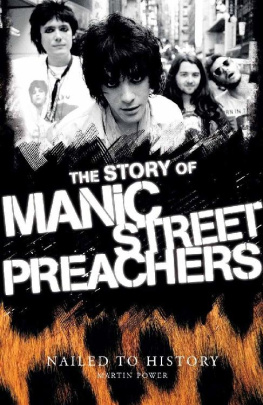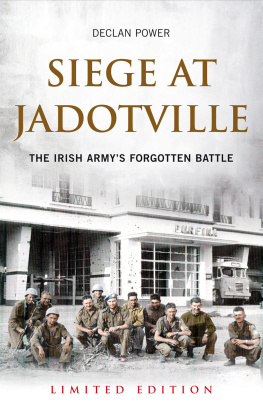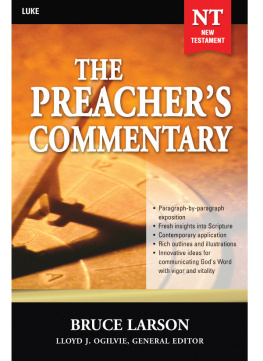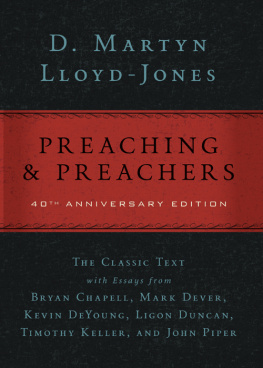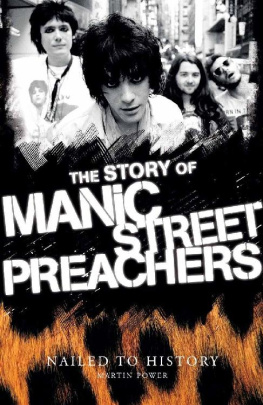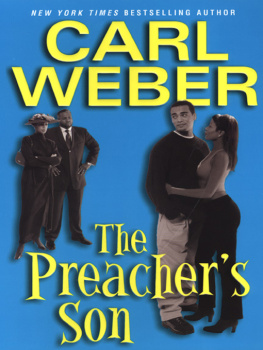Power - The story of Manic Street Preachers: nailed to history
Here you can read online Power - The story of Manic Street Preachers: nailed to history full text of the book (entire story) in english for free. Download pdf and epub, get meaning, cover and reviews about this ebook. City: Wales, year: 2010;2018, publisher: Music Sales;Omnibus, genre: Non-fiction. Description of the work, (preface) as well as reviews are available. Best literature library LitArk.com created for fans of good reading and offers a wide selection of genres:
Romance novel
Science fiction
Adventure
Detective
Science
History
Home and family
Prose
Art
Politics
Computer
Non-fiction
Religion
Business
Children
Humor
Choose a favorite category and find really read worthwhile books. Enjoy immersion in the world of imagination, feel the emotions of the characters or learn something new for yourself, make an fascinating discovery.
- Book:The story of Manic Street Preachers: nailed to history
- Author:
- Publisher:Music Sales;Omnibus
- Genre:
- Year:2010;2018
- City:Wales
- Rating:3 / 5
- Favourites:Add to favourites
- Your mark:
- 60
- 1
- 2
- 3
- 4
- 5
The story of Manic Street Preachers: nailed to history: summary, description and annotation
We offer to read an annotation, description, summary or preface (depends on what the author of the book "The story of Manic Street Preachers: nailed to history" wrote himself). If you haven't found the necessary information about the book — write in the comments, we will try to find it.
Power: author's other books
Who wrote The story of Manic Street Preachers: nailed to history? Find out the surname, the name of the author of the book and a list of all author's works by series.
The story of Manic Street Preachers: nailed to history — read online for free the complete book (whole text) full work
Below is the text of the book, divided by pages. System saving the place of the last page read, allows you to conveniently read the book "The story of Manic Street Preachers: nailed to history" online for free, without having to search again every time where you left off. Put a bookmark, and you can go to the page where you finished reading at any time.
Font size:
Interval:
Bookmark:

Children find everything in nothing. Men find nothing in everything.
Giacomo Leopardi, Zibaldone Scelto
B eing children and knowing no better, they loved it at first. Then, as they grew, they came to understand its limitations and began to resent it. That resentment led to boredom, crushing boredom, and the need to escape its confines became overpowering. And with the advent of adulthood, escape they did. When asked questions by others, they were quick to pick at its every fault, bury it in insults, even disown it. But as time went by, they became more forgiving, and their words became kinder. One of their number, if not quite the prodigal son, soon returned to live beside it and might berate you for speaking badly of it at all.
The It in question is Blackwood, South Wales, and Blackwood gave birth to the Manic Street Preachers as much as their parents ever did.
Perched on a hillside at the edge of the Sirhowy Valley, Blackwood lies just far enough from major roads to enjoy some clean air, though not quite the pure stuff that city types form hiking groups to breathe. A busy road cutting right through the high street makes sure of that. Since 1996, it has been a part of the county borough of Caerphilly, though before Wales began unifying its local authorities, Blackwood fell within the auspices of Islwyn and Gwent County Council.
At its centre lies the Miners Institute, or The Stute. Originally built in 1925 as a snooker hall for local colliery workers, the Institute fell into disrepair during the Eighties, its fate mirroring that of the ailing mining industry. Re-opened as a multi-entertainment centre in 1992, Blackwood Miners Institute now serves the local community for comedy, music and drama, its name a gentle reminder of harder times. Approximately 14 miles from the city of Newport and a little further to Cardiff, Blackwood or Coed Duon, as it is known in Welsh is a small town, the total population tipping 20,000 or so. That number has grown rapidly in recent years with local regeneration projects, new bridges and better link roads to bigger places putting Blackwood up there with other commuter-friendly locations in the area. However, it wasnt always that way.
The records have it that Blackwood started life as a model village founded by local colliery owner John Hodder Moggridge in the early 1800s. An enlightened man for his time, Moggridge was concerned by the poor living conditions available to his mine workers and built a series of small, but surprisingly sturdy cottages with accompanying allotments that he duly leased back to them at a modest profit, of course. The Blackwood experiment proved such a success that he repeated the formula in nearby Ynysddu and The Ranks, some four or so miles away. By the 1830s, the village had extended its boundaries and even found a political voice, with one of its residents, Zephaniah Williams, a major activist within the growing nationwide Chartist movement. Now regarded as the first real example of the working class banding together to effect political reform, Chartists represented fair wages, a better standard of living and a vote for all men over the age of 21, regardless of origin or social position.
To that end, Williams and local Chartist leader John Frost planned what became known as The Newport Rising at Blackwoods Coach & Horses pub in November 1839. The idea was noble enough: lead a march of protesters to the nearby town, bring attention to the cause and simultaneously set free their fellow activists thought to be jailed at Newports Westgate Hotel. Sadly, their efforts to storm the Westgate armed only with pikes was soundly rebuffed by a small, but well armed military presence. When hostilities ceased, at least 20 protesters lay dead, with a further 200 men including Frost, Williams and a number of Blackwood natives sentenced to be hung, drawn and quartered for high treason.
Relative mercy was shown: the sentence was commuted from death to transportation to Tasmania. If the plan itself failed, it at least showed that the men of Blackwood had some iron in their blood, this fact eventually commemorated by the building of the Chartist Bridge: a futuristic structure unveiled just outside the town in 2005, it links the east and west sides of the Sirhowy Valley, providing quicker routes for business and an end to the traffic tailbacks that marred Blackwoods high street for many a decade. The statue of a Chartist that guards the bridge, pike in hand, body turned towards Newport remains a less practical, but perhaps stronger memento of the towns involvement with that cause.
As the 19th century turned, Blackwood left behind its village origins, and showed the first real signs of the town it would eventually become: a long wide street, with trams moving its citizens back and forth, a parade of shops, a bank and more pubs than one might describe as strictly healthy for its size. In line with the Welsh religious revival of 1905, God also moved into Blackwood, with Methodist, Baptist, Pentecostal and Catholic churches soon arriving to offer alternative routes to salvation. When the Titanic was sinking near Newfoundland in 1912, a local man named Artie Moore was one of the first to hear its cries of distress through the hiss and crackle of his amateur radio set. Sadly, the authorities paid no attention to him at the time. Moore was later given a job with the Marconi Wireless Telegraph Company, whose radio system was installed on the Titanic when Moore tuned in that night. Some seven decades later, Blackwood would become home to some of the very electronics and communications businesses that Marconi paved the way for, though their arrival in the area would be a distinctly mixed blessing.
During World War Two, children from Englands South Eastern counties were evacuated to Blackwoods surrounding areas, finding the hills some peppered with cherry trees a curious, but safe alternative to the blitz conditions plaguing their parents some 150 miles away. Not that Blackwood and its men didnt play a part in both World Wars, the names of those locals lost in battle now etched upon the towns cenotaph. By the early Seventies, Blackwood was more or less fully formed. Still on the hillside, still equally close to God, alcohol and the mining industry, it remained a place that traffic passed through when journeying to bigger conurbations such as Pontypool, Newbrigde and Ystrad Mynach. Many of its residents would also follow that traffic in search of their weekly wages, or the more earthly delights of Cardiff or Newport: In the Seventies, said one resident, Blackwood was a typical Welsh town. Still is, to a point. Good and bad habits, a bit of an in-betweener. Most people saw it from the window of a car.
Of course, the young Nicholas Allen Jones or Nicky for short didnt care about any of that. At least, not at first. All he really wanted to do was play. Born on January 20, 1969, Nicky Joness abiding love then as now was sport. Cricket, golf, athletics, boxing, Nicky loved the lot. However, he particularly excelled at soccer, following his team of choice, Tottenham Hotspur, avidly as a child. Inevitably, Jones was keen to transfer the skills he witnessed on The Big Match to the pitch, or in Blackwoods case, a large unruly playing field owned by the local Gossard factory. As workers produced corsets and girdles inside, Nicky and his teammates were kicking a ball a hundred or so yards away. The dedication paid off: as a teenager, Jones would captain Wales schoolboy team, his skills as an attacking midfielder eventually leading to a trial with Tottenhams arch north London rivals, Arsenal. Sadly, genetic predisposition in the form of a weak back curtailed Jones football aspirations for good. That said, this wasnt yet a factor as he tore around the Gossard field trying to emulate Spurs Steve Perryman and Glenn Hoddle.
Font size:
Interval:
Bookmark:
Similar books «The story of Manic Street Preachers: nailed to history»
Look at similar books to The story of Manic Street Preachers: nailed to history. We have selected literature similar in name and meaning in the hope of providing readers with more options to find new, interesting, not yet read works.
Discussion, reviews of the book The story of Manic Street Preachers: nailed to history and just readers' own opinions. Leave your comments, write what you think about the work, its meaning or the main characters. Specify what exactly you liked and what you didn't like, and why you think so.

